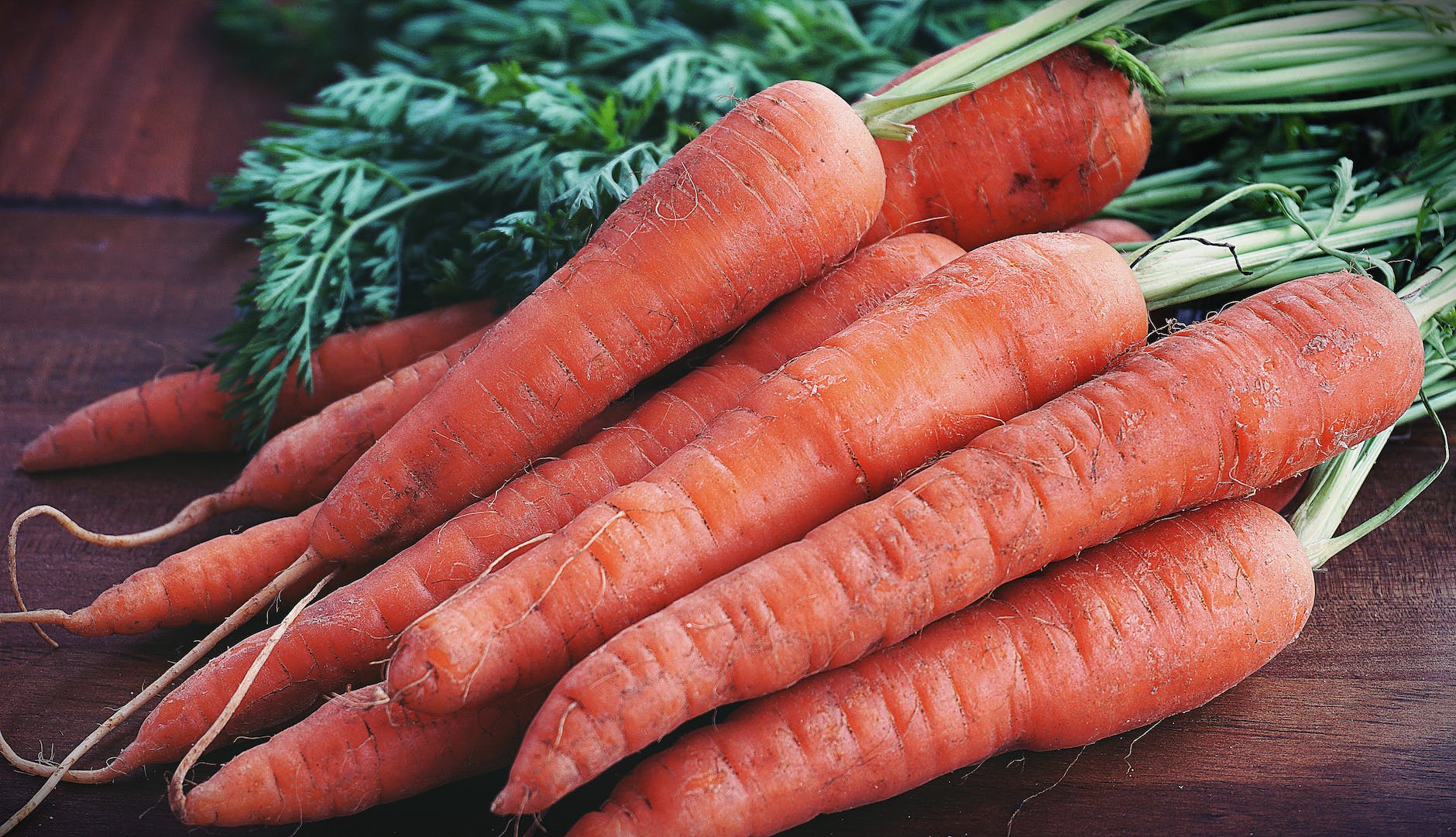
Carrots are not only visually appealing with their vibrant orange hue but are also packed with essential nutrients that can benefit your overall health. In this comprehensive blog post, we’ll take a closer look at the nutrition facts of carrots, exploring their macronutrient and micronutrient composition, health benefits, and ways to incorporate them into a balanced diet. Get ready for a deep dive into the nutritional goodness of carrots and discover why they deserve a prominent place on your plate! 🥕🔍
🔍 Macronutrient Composition Carrots are primarily composed of carbohydrates, with a modest amount of protein and minimal fat content. Here’s a breakdown of the macronutrient profile for a 100-gram serving of raw carrots:
- Calories: Approximately 41 calories
- Carbohydrates: Around 9.6 grams
- Dietary Fiber: Roughly 2.8 grams
- Sugars: Approximately 4.7 grams
- Protein: About 0.9 grams
- Fat: Less than 0.2 grams
🥕 Rich in Dietary Fiber Carrots are an excellent source of dietary fiber, which is crucial for digestive health, weight management, and maintaining stable blood sugar levels. The fiber in carrots adds bulk to the diet, promoting feelings of fullness and aiding in healthy digestion. Additionally, fiber helps regulate blood sugar levels by slowing down the absorption of glucose in the bloodstream.
🔍 Vitamins and Minerals Carrots are packed with a variety of vitamins and minerals that contribute to their nutritional value. Here are some key nutrients found in a 100-gram serving of raw carrots:
- Vitamin A: Carrots are famously known for their high vitamin A content. A 100-gram serving can provide around 835 micrograms of vitamin A, which is essential for eye health, immune function, and maintaining healthy skin and mucous membranes.
- Vitamin K: Carrots contain vitamin K, a nutrient important for blood clotting and bone health.
- Vitamin C: Carrots offer a moderate amount of vitamin C, an antioxidant that supports immune function, collagen synthesis, and iron absorption.
- Potassium: Carrots are a good source of potassium, an electrolyte that helps regulate fluid balance, nerve function, and muscle contractions.
- Other Micronutrients: Carrots also contain small amounts of vitamin E, vitamin B6, folate, calcium, magnesium, and phosphorus.
🥕 Antioxidant Power Carrots are rich in antioxidants, which are compounds that help protect the body from the damaging effects of free radicals. The antioxidants in carrots, such as beta-carotene, lutein, and zeaxanthin, have been associated with various health benefits, including reduced risk of chronic diseases like heart disease and certain types of cancer.
🔍 Incorporating Carrots into Your Diet Carrots are versatile and can be enjoyed in various ways. Here are some delicious and nutritious ways to incorporate carrots into your daily diet:
- Raw as Snacks: Enjoy carrot sticks on their own or with a dip like hummus or Greek yogurt for a satisfying and healthy snack.
- In Salads: Add grated or thinly sliced carrots to your salads to add a touch of sweetness, vibrant color, and crunch.
- Roasted or Steamed: Roasting or steaming carrots can enhance their natural sweetness and bring out their tender texture. Drizzle them with olive oil, sprinkle with herbs and spices, and roast or steam until tender.
- In Soups and Stews: Chop carrots into small pieces and add them to soups, stews, and casseroles for extra flavor, nutrition, and texture.
- As a Juicing Ingredient: Juice fresh carrots with other fruits and vegetables for a nutrient-packed and refreshing beverage.
- In Baked Goods: Grate carrots and incorporate them into muffins, cakes, or bread for added moisture, natural sweetness, and nutritional value.
🥕🔍 Carrots are a nutritional powerhouse, offering an array of vitamins, minerals, dietary fiber, and antioxidants. By incorporating carrots into your diet through various cooking methods and recipes, you can reap the benefits of these vibrant and nutrient-dense root vegetables. So, go ahead and savor the goodness of carrots while nourishing your body and supporting your overall health!











